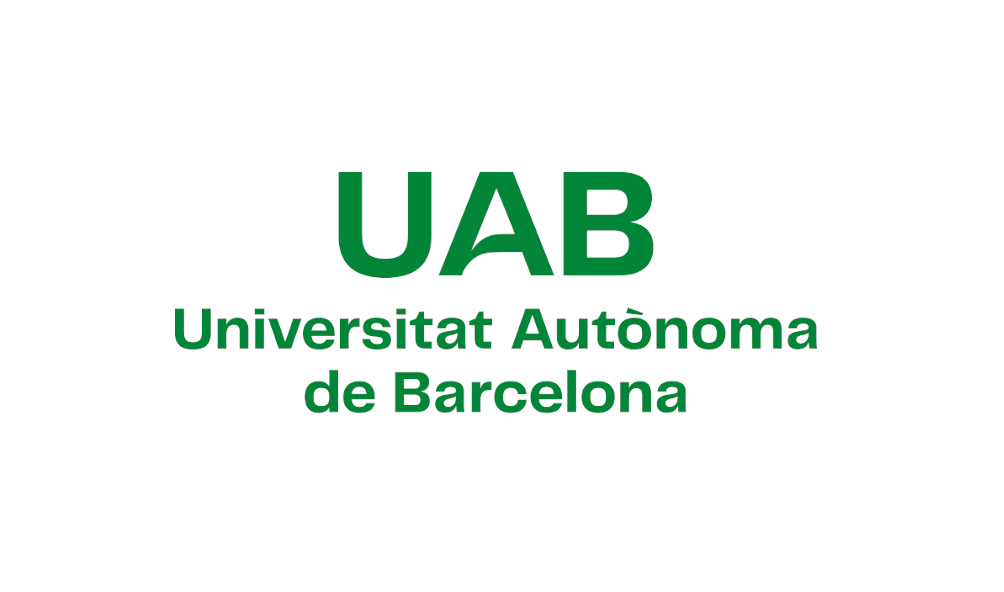Les empreses de seguretat i militars privades en l’àmbit pública
Als darrers vint anys, s’ha pogut observar una proliferació d’actors no públics en àrees importants de les relacions internacionals, com el comerç, les comunicacions, les finances i la seguretat (Saner i Yiu, 2003). Aquesta supressió de la frontera entre els àmbits públic i privat ha fet més difícil garantir el respecte i l’aplicació de les lleis i dels convenis internacionals humanitaris, com les convencions de Ginebra, les convencions sobre la protecció dels refugiats i les normes de drets humans per part dels governs que els han subscrit (Saner, 2015).
Els conflictes armats, el terrorisme i les guerres entre estats han anat creixent incessantment, alhora que les tensions internacionals també han augmentat en molts punts del planeta. Els governs eludeixen cada vegada més el control democràtic, eviten la publicitat negativa i neguen de forma plausible les seves responsabilitats recorrent a empreses de seguretat i militars privades (PMSC) per acomplir les seves activitats de guerra i pau. Les organitzacions internacionals i les empreses multinacionals també recorren a les PMSC per assegurar els seus vaixells i les seves tripulacions enfront dels pirates, els rebels i els grups terroristes en territoris d’alt risc. S’han produït violacions dels drets humans per part del personal de les PMSC a les guerres de l’Iraq, l’Afganistan, Síria, el Congo i altres zones en conflicte del planeta, incloent-hi l’ús de drons armats i dels sistemes informàtics relacionats corresponents (Centre for Civilians in Conflict, 2019).
Algunes dades estimades sobre el nombre total de contractes anuals al sector de les PMSC eleven la xifra als 100.000 milions de dòlars (Centre for Media and Democracy, 2019). Aquestes estimacions varien en funció de la distinció que es fa sovint entre empreses militars privades i empreses de seguretat privades (CSEND, 2019). Les empreses militars privades es dediquen més aviat a proporcionar serveis als militars, però no participen directament en els combats perquè, si no, serien considerades mercenaris, cosa que no els atorgaria la protecció del dret internacional humanitari com a combatents regulars. Per la seva banda, les empreses de seguretat privades són contractistes privats que proporcionen serveis de seguretat a les persones, als edificis i altres instal·lacions: per exemple, la vigilància dels edificis de les organitzacions humanitàries, incloses les Nacions Unides (UN), a diferents països del món.
Malgrat aquestes distincions, la classificació d’aquestes empreses és molt variable, ja que algunes d’elles duen a terme tota la gamma d’activitats, mentre que d’altres tenen filials en diferents parts del món on duen a terme activitats militars o de seguretat (Saner et al., 2019). Aquesta classificació també es veu afectada per la manca de transparència en aquest sector, cosa que dificulta obtenir informació detallada sobre la constitució, els recursos i l’operativa d’aquestes empreses. Algunes dades sobre les PMSC occidentals s’han fet públiques (Saner, 2015), però no passa el mateix en altres zones del planeta.
El recurs creixent a les PMSC s’ha avançat al desenvolupament de les estructures reguladores pertinents. L’evolució de la tecnologia de defensa indica que la pròpia naturalesa de les PMSC pot canviar constantment, la qual cosa requereix una evolució i una actualització contínues de les tècniques de vigilància a fi de mantenir-se al corrent dels canvis.
Ús de les PMSC per part dels estats
Segons el Centre Internacional per al Control Democràtic de les Forces Armades (DCAF) radicat a Ginebra, diversos estats recorren regularment a l’ús de les PMSC, inclosos alguns dels més rics i militarment capaços, i també d’altres de més inestables i amb unes forces armades menys potents (Schreier i Caparini, 2005, p. 19). Els estats més desenvolupats d’Europa i d’Amèrica del Nord han vist com, malgrat els seus grans coneixements per construir sofisticats arsenals i artilleria pesant, són incapaços de combatre en guerres de baixa intensitat (Schreier i Caparini, 2005, p. 91), en què no sempre s’enfronten a oponents militars com els d’una guerra convencional (Hong, 2000). A l’hemisferi sud, la contractació de PMSC resulta atractiva per la necessitat dels estats de combatre amenaces internes, com ara el terrorisme, el secessionisme i el tràfic de drogues, mentre s’esforcen per reunir el capital suficient i promoure la moral pública per desenvolupar un exèrcit.
Ús de les PMSC per part de les organitzacions internacionals
Les organitzacions internacionals, tant si són de tipus militar com si no, recorren a les PMSC a través de diversos contractes. Per exemple, l’ONU utilitza els serveis d’empreses de seguretat privades de forma regular per oferir assessorament logístic, serveis d’intel·ligència i consultoria sobre l’organització als seus comitès (Østensen, 2013). A mesura que les peticions de suport de l’ONU han augmentat arreu del món i aquesta s’ha vist involucrada en operacions més i més complexes, ha anat experimentant la necessitat de recórrer a experts en una gran varietat de camps i a tota una sèrie d’entitats que li ofereixen els serveis de seguretat que necessita. Observant la situació globalment, ha utilitzat les capacitats de les empreses de seguretat privades en accions humanitàries, operacions de pau, missions polítiques i de seguretat en general. Aquesta opció ha resultat més atractiva sobretot arran de les controvèrsies internacionals que han acompanyat sovint el desplegament de les tropes nacionals en països estrangers, fins i tot amb un mandat de l’ONU.
L’habilitat de l’ONU de recórrer a consultors o a personal militar amb coneixements locals sobre un camp específic d’operacions ha proporcionat al personal de l’ONU uns coneixements estratègics molt matisats, i d’això també se n’han beneficiat alguns dels principals estats membres, com els Estats Units. La seva escassa visibilitat protegeix els estats membres, com els Estats Units, de les acusacions de dur a terme una vigilància policial de la comunitat mundial. Alguns exemples d’intervenció nord-americana amb l’ajuda d’empreses de seguretat privades són les accions de pau al Timor oriental, que van ser complementades amb helicòpters privats i comunicacions per satèl·lit, i la missió a la República Democràtica del Congo, amb l’ajuda d’equips armats de seguretat privada i d’empreses de suport logístic (Østensen, 2013, p. 16).
L’Organització del Tractat de l’Atlàntic Nord (OTAN) i l’Organització per a la Seguretat i la Cooperació a Europa (OSCE) utilitzen públicament les PMSC. Molts estats membres són signants del Document de Montreux, que recomana una sèrie de bones pràctiques en l’ús de les PMSC per part dels estats (Comitè Internacional de la Creu Roja, s. d.). I, si bé l’OTAN i l’OSCE poden subscriure el Document de Montreux i aplicar-lo en els seus acords concrets amb les PMSC, no hi ha cap document similar per als actors no estatals que també recorren a les PMSC (Clapham i Gaeta, 2014).
L’OTAN ha fet intervencions militars servint-se de les PMSC amb bastant regularitat des de la seva intervenció als Balcans als anys noranta del segle passat. Un tret significatiu del cas de l’OTAN és que les PMSC han tingut efectes diferents en les relacions polítiques entre els estats membres. Com a resultat dels punts de vista divergents sobre el paper general de l’OTAN en la governança global, molts estats membres rebutgen intervenir militarment en els conflictes (Mosquera, 2012, p. 52). La possibilitat de desplegar empreses militars privades en comptes de les tropes nacionals sovint ha simplificat les negociacions (De Nevers, 2007, p. 49). Aquesta tàctica la va fer servir sovint el president americà George W. Bush i va substituir el diàleg real sobre el paper de l’OTAN després del període de la Guerra Freda (Mosquera i Chalanouli, 2012, p. 53).
Ús de les PMSC per part de les empreses multinacionals
Les empreses multinacionals amb interessos estratègics als països en via de desenvolupament sovint contracten empreses de seguretat privades per proporcionar una seguretat especialitzada al seu personal, clients i propietats. Se sap que Nestlé, Shell i el gegant petrolier francès Total fan ús d’aquestes empreses per salvaguardar els seus interessos als països en via de desenvolupament on, altrament, no seria rendible operar (Percy, 2012). Les ambigüitats sorgeixen quan una empresa multinacional se situa en un estat tan volàtil que el seu personal de seguretat es veu obligat a tractar regularment amb intrusos fortament armats. Aquest és un cas freqüent en els estats opressius o repressius, així com a les regions amb un alt risc de segrestos, pirateria i atacs terroristes. En aquests casos, ni tan sols queda clar si aquestes empreses de seguretat privades intervenen en combats o actes irregulars, o més d’actuar com a meres proveïdores de serveis de seguretat. També resulta ambigu si tenen o no la condició d’organitzacions civils i, en aquest cas, per quines lleis es regeixen.
Aquestes qüestions resulten encara més complexes quan la multinacional és una empresa de titularitat pública o està molt vinculada a un estat. Se’n troben exemples a la indústria minera sud-africana, en què un departament del govern és responsable de supervisar les inversions en les empreses públiques en nom dels “accionistes” polítics. Quan es fan servir vigilants de seguretat privats per protegir les infraestructures mineres del vandalisme i la destrucció, no queda clar on recau el pes de la responsabilitat de supervisar la conducta dels vigilants. El fet que els policies públics i els agents de seguretat privats vagin armats i que algunes de les seves activitats se solapin fa difícil distingir entre la vigilància policial pública i la privada. Com a conseqüència d’això, és més difícil precisar si les empreses de seguretat privades implicades estan actuant dintre dels seus límits operatius o bé gaudeixen, de manera il·legal, d’alguns dels privilegis dels oficials de l’estat.
Malgrat això, la política de recórrer a les PMSC en l’àmbit comercial es manté ferma perquè les zones d’extracció de minerals naturals sovint són focus d’enfrontaments polítics violents o de robatoris oportunistes. Per exemple, l’expansió de la inversió estrangera en la indústria petroliera nigeriana ha provocat una gran afluència de rics comerciants de petroli des de mitjan anys seixanta fins avui. Això ha causat una onada d’atacs terroristes, incloent segrestos i explosions en oleoductes, provocats per grups rebels locals que reclamen compartir els beneficis que els empresaris estrangers s’estan emportant del seu territori (Associated Press, 2014). Avui dia, Nigèria està inundada de personal de PMSC britàniques i americanes que vigilen les reserves de petroli i de gas especialment a la regió del delta del Níger (Abrahamsen i Williams, 2005). Segons OneReport, Shell s’ha gastat 383 milions de dòlars només en personal de seguretat nigerià i 75 milions específicament en contractes amb PMSC i experts que li proporcionen coneixements especialitzats, de manera que, si Shell fos un estat, seria el tercer en despeses de seguretat a l’Àfrica, per darrere dels governs sud-africà i nigerià (Hirsch i Vidal, 2012).
Una altra complicació són les PMSC que es converteixen en stakeholders de les empreses multinacionals que estan protegint; d’aquesta manera, es difuminen les línies de la seva objectivitat operativa (Selber i Jobarteh, 2002, p. 91). Això ha resultat especialment problemàtic per a la indústria minera africana i ha obert la possibilitat que les PMSC prolonguin un conflicte o promulguin normes laborals perjudicials per raó dels interessos econòmics que tenen en els recursos naturals en disputa. Per exemple, a Sierra Leone, així com Executive Outcomes (EO, una empresa militar sud-africana) va ser fonamental per portar la pau a la regió, el seu pagament amb la propietat parcial dels recursos naturals del país en va subvertir els interessos contractuals i econòmics (Selber i Jobarteh, 2002, p. 92). Per bé que EO no facilitava el comerç de diamants, que finançava un moviment molt poc ètic, la mera existència de milions de miners de menys de 16 anys convertia EO en còmplice de l’explotació laboral infantil i, per tant, en determinant per a la proliferació dels “diamants de sang” a Sierra Leone (Fofana, 2003).
Les PMSC franceses també s’han vist immerses en afers tèrbols pels seus contractes amb Areva, la multinacional francesa de l’urani que cobreix l’enorme demanda d’energia nuclear de França. Si bé es comprèn la necessitat de desplegar empreses de seguretat privades en els terrenys inestables on s’extreu el mineral d’urani, en països com el Níger, el retorn d’una presència francesa fortament militaritzada és una reminiscència incòmoda de l’era colonial (Friends of the Earth Australia, 2013). Les PMSC que treballen per a multinacionals com Areva són còmplices d’entorpir el desenvolupament militar del Níger, en recórrer a empreses de seguretat estrangeres i no desplegar l’exèrcit del país.
Les ambigüitats sobre l’ús de les PMSC
Després d’il·lustrar la realitat de les PMSC que ofereixen els seus serveis a un ampli ventall d’organitzacions clients, és important avaluar els contextos jurídics i polítics en què actuen. Les empreses militars privades que operen en punts geogràfics i climes polítics diferents s’han vist atrapades en casos flagrants de vulneració dels drets humans, fraus financers i acusacions d’atiar els conflictes polítics. Per avançar mètodes realistes de millorar la trajectòria de les PMSC en matèria de drets humans i en qüestions socials, seria útil disposar d’un marc legal que permetés exigir-los responsabilitats.
L’ambigüitat jurídica és deguda, normalment, a un llenguatge legislatiu imprecís que ofusca la responsabilitat jurídica. Això és substancialment diferent a la manca d’una regulació general. El terme regulació no implica pròpiament un règim de control amb conseqüències jurídiques en cas d’incompliment, que inclogui la imposició de sancions com un element de llei dura. Això és rellevant a l’hora de valorar els marcs jurídics sobre les PMSC en una sèrie d’escenaris. Així doncs, quan els departaments de premsa dels estats, les organitzacions internacionals i les empreses multinacionals combinen les normes no vinculants amb la llei vinculant, les parts afectades queden confoses sobre l’abast de la responsabilitat que supervisa la indústria de les PMSC. Això pot fer disminuir la voluntat política de dur a terme una reforma legal que incorpori les empreses militars privades en un sistema regulador estricte.
El discurs públic sobre les PMSC se centra principalment en les limitacions de la regulació dels governs. El debat essencial va més enllà de si els governs tenen massa llibertat a l’hora de recórrer a les PMSC, de manera legítima i il·legítima. Gairebé totes les multinacionals i els organismes internacionals importants tenen alguna cosa a guanyar de l’externalització de la protecció: així doncs, la regulació del sector de les PMSC és més que una mera qüestió governamental. Perquè la reclamació a favor que n’existeixi avui un marc regulador sigui convincent, ha de quedar clara l’existència d’una regulació que afecti tant les PMSC que fan servir els estats com les altres.
Si bé hi ha una certa ambigüitat en els marcs normatius nacionals que regulen les operacions i els contractes de les PMSC arreu del món, no hi ha cap llacuna en dret internacional sobre si els empleats de les PMSC han de ser processats pels delictes comesos a l’estranger. S’explicita molt clarament al dret internacional humanitari i es repeteix al Document de Montreux que l’Estat on està inscrita la PMSC és responsable de jutjar les acusacions penals i civils (Comitè Internacional de la Creu Roja, 2008; Chatham House, 2005). El fet que hi hagi encara un alt grau de criminalitat i poca rendició de comptes en la indústria de les PMSC malgrat les normes legals aplicables a escala internacional indica que el dret internacional potser no és (encara) un instrument efectiu per regular les PMSC.
Formes possibles de resoldre els problemes ocasionats per la regulació ambigua de les PMSC
Com es dedueix del debat sobre el marc regulador, hi ha un sistema incongruent de lleis vinculants i no vinculants que poden actuar unes contra les altres i crear una imatge imprecisa de què és acceptable exactament en les activitats comercials de les PMSC. Davant d’unes definicions conflictives de mercenaris i PMSC, i uns estats que poden proporcionar una via fàcil per eludir la legislació, fins i tot els models reguladors més prometedors no aconsegueixen tenir l’impacte volgut sobre la creixent indústria militar i de la seguretat privada.
Actualment, les propostes de regulació s’han centrat, d’una manera desproporcionada, a debatre si és més probable que tinguin un impacte positiu les lleis nacionals o les internacionals sobre la matèria. Si bé cada legislació té les seves virtuts, una discussió d’aquest tipus no sempre és constructiva. Convé apreciar les limitacions de cadascuna, per cercar un enfocament multidireccional que utilitzi els instruments jurídics nacionals, supranacionals i internacionals, junt amb les pressions no jurídiques, provinents de les finances i del mercat. Les lleis internacionals són vagues, generals, fàcils d’eludir i difícils de negociar i de crear, per començar. Les legislacions nacionals depenen de la voluntat política en la seva aplicació estricta perquè siguin quelcom més que un aparador. Fins ara, els controls supranacionals no existeixen i poden comportar diverses dificultats. Una combinació legal que presenti els punts forts d’aquests tres tipus de legislacions i compensi les limitacions de cadascuna d’elles és una forma més matisada i sofisticada d’abordar la regulació d’aquest sector tan sensible.
Mentrestant, l’ingredient secret que ha assegurat que les entitats privades compleixin amb les expectatives legals (especialment les que concerneixen la salvaguarda dels drets humans) és la pressió dels negocis per atreure inversors. Igual que el moviment contra l’apartheid va comptar amb l’ajuda dels boicots econòmics i l’ecologisme actual és capaç de pressionar fent crides a desinvertir en aquelles empreses que tenen grans petjades de carboni, la indústria militar i de la seguretat privada ha d’evitar transgredir aquelles lleis i normes que li puguin limitar l’accés a contractes molt lucratius. Al mateix temps que milloren la imatge per atreure els inversors, les PMSC han de preveure possibles restriccions del negoci com a conseqüència de la vulneració de determinades lleis i normes que els podrien dificultar l’accés als clients; d’aquí la necessitat del sector de millorar la imatge per assegurar-se un accés continuat als clients, evitant una protesta concertada.
Una típica línia de recerca que ofereix una possible solució a aquestes ambigüitats és l’enfortiment de les legislacions nacionals. En general, hi ha dos tipus d’estats: els que tenen una legislació rellevant en matèria de PMSC i els que no. Segons OneReport, només 40 dels 193 estats membres de l’ONU disposen d’alguna mena de regulació de les PMSC (Oficina de l’Alt Comissionat per als Drets Humans de l’ONU, s. d.). Afortunadament, les contractacions més importants i els principals estats receptors, com ara els Estats Units i l’Iraq, figuren entre aquests 40; tanmateix, molts d’altres, especialment alguns països políticament molt inestables, com Colòmbia i Somàlia, disposen d’uns marcs legals molt limitats o molt febles per regular les seves indústries militars i de seguretat privades (Oficina de l’Alt Comissionat per als Drets Humans de l’ONU, s. d.).
Si bé es pot intuir que això suposa un perill per als empleats de les PMSC locals i per a la població civil que viu a la zona on operen aquestes empreses, és important recordar que els territoris sense de regulació del món desenvolupat actuen com a zones franques que permeten que hi operin sense cap control les PMSC dels pocs països que disposen de règims de control d’aquestes empreses. Com es pot veure en la conducta del Northbridge Services Group, resulta jurídicament i econòmicament atractiu per a les PMSC no disposades a veure limitada la seva actuació per una legislació interna estricta constituir-se en estats amb règims jurídics més indulgents i operar des d’ells; concretament, el Northbridge Services Group es va constituir a la República Dominicana, però té oficines comercials al Regne Unit, als Estats Units i a Ucraïna (Grenfell i James, 2008). Per la seva banda, Combat Support Associates té una empresa filial sospitosament inscrita a les illes Caiman, com és CSA Limited (Observer-Reporter, 2008), i moltes altres PMSC destacades o bé es registren en països amb escassa regulació sobre la matèria o bé, més intel·ligentment, creen empreses filials ambigües o amb denominacions gens sospitoses en zones jurídicament neutrals. Això els permet esquivar les lleis restrictives i continuar rebent contractes governamentals de qualsevol país desenvolupat on puguin tenir la seu comercial.
En aquells casos en què no hi ha la voluntat política ni els recursos institucionals per crear una regulació sobre les PMSC, cal recórrer a les lleis i a les convencions supranacionals o internacionals per promoure una regulació interna, cosa que planteja una sèrie de reptes i crea algunes barreres. Així doncs, en aquells països que malgrat que tenen lleis que regulen les PMSC es registren nombroses conductes irregulars, els problemes que s’han de resoldre són de dos tipus: una legislació feble o una aplicació deficient d’aquesta.
Conclusions
La indústria de seguretat i militar privada s’ha convertit en una part important de l’economia internacional. Tanmateix, és important que la regulació que es desenvolupi pugui avançar dinàmicament amb l’expansió d’aquesta indústria. També és important observar que no existeix una única via ideal per als responsables de les polítiques. Mentre que el debat actual entorn de les solucions a aquest problema de regulació es basa en si el millor mètode passa per la regulació nacional o internacional, les empreses militars privades i els qui les contracten tenen la capacitat de triar al seu gust les directrius i la legislació que volen seguir, amb la qual cosa els instruments reguladors existents avui acaben essent inefectius.
En comptes d’això, els actors polítics haurien d’acceptar el potencial afegit que suposaria vigilar les empreses militars i de seguretat privades amb una web que facilités instruments complementaris, amb mecanismes jurídics vinculants i no vinculants, i fer servir també els mecanismes de pressió del sector financer. Fins i tot l’aprovació de lleis de més gran abast habitualment no ha estat suficient per alterar unes normes polítiques i socials perjudicials. I, si bé pot ser difícil de concebre, dissenyar i coordinar un enfocament multidireccional, és l’única via que s’ha intentat i s’ha provat, i que la història ha confirmat que porta realment a un canvi efectiu.
Alguns països intenten distingir entre les PMC (empreses militars) i les PSC (empreses de seguretat), malgrat que totes dues variants poden acabar essent dues divisions d’una mateixa empresa, que a vegades es fan servir indistintament, cosa que dificulta l’assignació de responsabilitats especialment en cas de vulneracions dels drets humans i del dret internacional humanitari. Una cosa similar passa amb la sofisticació creixent de les PMSC, per exemple amb l’ús de la intel·ligència artificial per utilitzar drons en zones de combat, en què alguns d’aquests drons, encara que s’utilitzen amb l’objectiu de la seguretat, recullen dades que es podrien fer servir amb fins militars. A més, els mètodes informàtics sofisticats que s’utilitzen per localitzar les forces enemigues també es poden utilitzar per controlar individus que pertanyin a determinats grups amics o hostils, la qual cosa n’incrementa el control a través dels seus perfils personals, que alimenten bases de dades que vulneren la seguretat privada i posen en perill la llibertat de moviment de les persones, sense el seu coneixement. L’abús dels mètodes informàtics basats en la intel·ligència artificial també s’ha de regular, així com la vulneració dels drets humans per part de les PMS.
Si bé les PMSC poden oferir solucions políticament adequades i rendibles per contrarestar la inestabilitat internacional o per desenvolupar les seves prioritats en les relacions exteriors, el reguitzell de vulneracions dels drets humans que deixen indica que la governança global dels conflictes armats no ha avançat prou ràpid per controlar adequadament la privatització creixent de les guerres. Com a resposta a aquesta situació, el present article aborda el debat sobre l’ús de les PMSC.
El concepte de les ambigüitats jurídiques i polítiques és essencial en aquest debat i és diferent de les idees relatives a la inexistència de mecanismes reguladors. El marc regulador actual que afecta la indústria de les PMSC és ambigu com a conseqüència d’uns límits legals porosos i d’unes polítiques incongruents, degudes a uns sistemes polítics i judicials que competeixen entre ells: a escala nacional, regional i internacional. En conseqüència, és essencial considerar de quina manera aquestes ambigüitats es poden reduir i transformar en seguretat jurídica a través de lleis vinculants i no vinculants que impedeixin les vulneracions dels drets humans.
Raymond Saner és professor de Relacions Internacionals i Gestió Internacional de la Universitat de Basilea i director del Centre for Socio-Economic Development (CSEND), acreditat per l’ECOSOC des de juny de 2014 com a entitat de caràcter consultiu especial per a les Nacions Unides. És membre dels consells editorials del Journal of Applied Behavioral Science, el Journal of Managerial Psychology i la Public Organization Review. Amaka Uchegbu és analista de negocis de McKinsey & Company i fou membre del Model UN Team i de l’Association for African Peace and Development de la Universitat de Yale. Lichia Yiu és cofundadora de Diplomacy Dialogue, ha estat professora titular de la Chinese Culture University i becària postdoctoral de la Universitat de Columbia. Té més de vint anys d’experiència com a assessora de governs i organitzacions internacionals en matèria de desenvolupament organitzatiu i reforma de l’administració pública.
Text basat en les publicacions i els actes següents:
Saner, Raymond; Uchegbu, Amaka; Yiu, Lichia (2019): “Private military and security companies: legal and political ambiguities impacting the global governance of warfare in public arenas”, Asia Pacific Journal of Public Administration, 41(2): 63-71. http://www.diplomacydialogue.org/images/files/20190628_Saner_et_al_article_in_APJPA_412_June_2019.pdf
UN Library Talk Event (2018): “Discussion on the Evolution of Warfare”. Seu de Ginebra de les Nacions Unides, 5 de desembre de 2018. Acte organitzat per l’autor, amb la participació d’experts en el camp: http://www.diplomacydialogue.org/conferences/political-diplomacy/180-evolution-of-warfare-the-respect-of-international-humanitarian-law-and-international-human-rights-law-by-private-military-security-companies.html
Saner, R. (2015): Private Military and Security Companies: Industry-Led Self-Regulatory Initiatives versus State-Led Containment Strategies. CCDP Working Paper, 11. Ginebra. The Centre on Conflict, Development and Peacebuilding. Graduate Institute of International and Development Studies.
Referències
Abrahamsen, R.; Williams, M. (2005): The globalisation of private security: Country report – Nigeria. Accessible a: https://gsdrc.org/document-library/the-globalisation-of-private-security-country-report-nigeria/
Associated Press (2014): “Terrorist attack at Nigerian bus station kills at least 71”. 14 d’abril. Accessible a: https://nypost.com/2014/04/14/terrorist-attack-at-nigerian-bus-station-kills-at-least-71/
Centre for Civilians in Conflict (2019): Lloc web. Accessible a: https://civiliansinconflict.org/our-work/impact/
Chatham House (2005): Private military companies: A legal vacuum? Resum del debat del Grup de Debat del Programa de Dret Internacional. Accessible a: http://www.chathamhouse.org/sites/default/files/public/Research/International%20Law/il160305.pdf
Clapham, A.; Gaeta, P. (ed.) (2014): The Oxford Handbook of International Law in Armed Conflict. Oxford: Oxford University Press, p. 706.
Comitè Internacional de la Creu Roja (2008): The Montreux Document on Pertinent International Legal Obligations and Good Practices for States related to Operations of Private Military and Security Companies during Armed Conflict of 17 September 2008. Accessible a: https://www.eda.admin.ch/eda/en/home/foreign-policy/international-law/international-humanitarian-law/private-military-security-companies/montreux-document.html
CSEND (Centre for Socio-Economic Development) (2019): Summary Report: The evolution of warfare. Presentat en un acte organitzat a la Biblioteca de les Nacions Unides, Ginebra, 5 de desembre de 2018. Accessible a: http://www.diplomacydialogue.org/images/files/20190202-CSEND-%20Un%20Library%20Jan%202019.pdf
De Nevers, R. (2007): “Imposing International Norms: Great powers and norm enforcement”. International Studies Review, 9(1): 53-80.
Fofana, L. (2003): “Children working in Sierra Leone mines”. BBC, 28 d’agost. Accessible a: http://news.bbc.co.uk/2/hi/africa/3189299.stm
Friends of the Earth Australia (2013): “Uranium mining in Niger”. Chain Reaction, 119. Accessible a: http://www.foe.org.au/uranium-mining-niger
Grenfell, D.; James, P. (2008): Rethinking Insecurity, War and Violence: Beyond savage globalization? Accessible a: https://doi.org/10.4324/9780203894194
Hirsch, A.; Vidal, J. (2012): “Shell spending millions of dollars on security in Nigeria, leaked data shows”. The Guardian, 19 d’agost. Accessible a: https://www.theguardian.com/business/2012/aug/19/shell-spending-security-nigeria-leak
Hong, K. W. (2000): “Low-intensity conflict”. Journal of Singapore Armed Forces, 26(3). Accessible a: https://www.mindef.gov.sg/oms/content/imindef/publications/pointer/supplements/LDAC/_jcr_content/imindefPars/0013/file.res/LIC.pdf
Krahmann, E.; Abzhaparova, A. (2010): The Regulation of Private Military and Security Services in the European Union: Current policies and future options. Working Paper. EUI AEL, 2010/08, Projecte PRIV-WAR. Accessible a: http://cadmus.eui.eu//handle/1814/18295
Mosquera, A. M.; Chalanouli, N. P. (2012): Regulating and Monitoring PMSCs in NATO Operations. Ponència presentada a la 35a Taula Rodona sobre qüestions d’actualitat de Dret Internacional Humanitari, Sanremo, Itàlia, 6 de setembre. Accessible a: http://iihl.org/wp-content/uploads/2018/12/35th-Round-Table.pdf
Observer-Reporter (2008): “Tropical tax haven for U.S. Defense contractor”. 8 de maig. Accessible a: http://news.google.com/newspapers?nid=2519&dat=20080508&id=sLdjAAAAIBAJ&sjid=_CgMAAAAIBAJ&pg=1875,16060152
Østensen, Å. G. (2011): UN Use of Private Military and Security Companies: Practices and Policies, n. 3. Accessible a: https://reliefweb.int/report/world/un-use-private-military-and-security-companies-practices-and-policies
Oficina de l’Alt Comissionat per als Drets Humans de l’ONU (s. d.): National Regulatory Frameworks on PMSCs. Accessible a: https://www.ohchr.org/en/Issues/Mercenaries/WGMercenaries/Pages/NationalRegulatoryFrameworks.aspx
Percy, S. (2012): “Regulating the private security industry: A story of regulating the last war”. International Review of the Red Cross, 94(887). Accessible a: http://www.icrc.org/eng/resources/documents/article/review-2012/irrc-887-percy.htm
Saner, R. (2015): Private Military and Security Companies: Industry-led self-regulatory initiatives versus state-led containment strategy. Accessible a: http://www.diplomacydialogue.org/images/files/CCDP_Working_Paper_11_-_PMSCs.pdf
Saner, R.; Yiu, L. (2003): International Economic Diplomacy: Mutations in post-modern times. Discussion Paper. La Haia: Clingendael Institute of International Relations.
Schreier, F.; Caparini, M. (2005): Privatising Security: Law, practice and governance of private military and security companies. Vol. 6. Accessible a: https://doi.org/10.13140/2.1.4488.0643
Selber, J.; Jobarteh, K. (2002): “From enemy to peacemaker: The role of private military companies in Sub-Saharan Africa”. Medicine & Global Survival, 7(2). Accessible a: https://www.ippnw.org/pdf/mgs/7-2-selber.pdf






























És obligatori estar registrat per comentar.
Fes clic aquí per registrar-te i rebre la nostra newsletter.
Fes clic aquí per accedir.